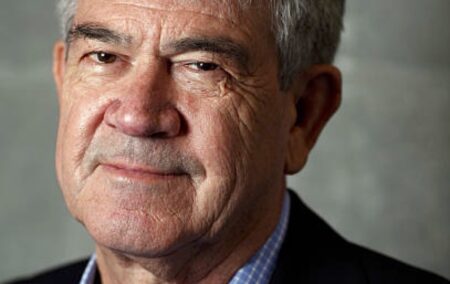This is the letter I wrote to The Economist opposing its ‘advice’ to support Cyril Ramaphosa in today’s election, and which it has not published.
The Editor,
In its cover story last week, The Economist offered advice to voters in the South African general election: “To stop the rot in South Africa, back Cyril Ramaphosa”. Similar advice was given by Mr Peter Bruce in his Business Day column on 11 April 2019.
But such advice rests on shaky foundations. Mr Ramaphosa’s name is not on the ballot paper. It is therefore a question of which party to vote for, rather than which president. Mr Ramaphosa holds his current position as president with a narrow margin of support from the 80 or so members of the ANC’s National Executive Committee (NEC). The ANC’s “Top Six” includes Mr David Mabuza, the deputy president, and Mr Ace Magashule, the ANC’s secretary general. Wikipedia’s “Scandals and Controversy” section of Mr Mabuza’s entry makes disturbing reading, while Gangster State – Unravelling Ace Magashule’s Web of Capture, a book presently on several “bestseller” lists, is devoted to the misdeeds of the latter.
Mr Ramaphosa, assuming the ANC retains him as national president, will thus remain impeded in bringing about desperately needed change. If not retained, he will almost surely carry out whatever new role the NEC assigns him, quietly, as a loyal party member, as indeed he did throughout the destruction of our national interests wrought during President Jacob Zuma’s tenure.
But of even greater long-term importance is for voters to recognise the ANC’s unblinking commitment to communist/socialist ideology, as entrenched in the so-called “National Democratic Revolution” (NDR):
Many of the NDR’s aims may have been laudable when written in the 1960s, but they have no place in an economy desperately in need of growth and jobs. It is from this communist manifesto that many of today’s ills have flowed: state interference in the economy, the mining charters which have hamstrung mining and virtually killed international investment, the disasters in nearly every state-owned enterprise, and the continuing objective of amending the Constitution, inter alia to allow land expropriation without compensation. It is hard to find any evidence that the ANC has the will or ability to run anything in a modern economy.
Millions of voters lacking decent shelter, water, power, sewerage and struggling daily to make ends meet despite 25 years of ANC rule, should disagree with the advice of again backing the deeply flawed, corrupt and incompetent ANC.
A good perspective for thoughtful voters might come from asking “Why did East Germans flock into West Germany when the Wall came down?” Obviously, to escape the misery and economic paralysis of communism, and to build their futures in the free enterprise system of the West. And in the years after that German re-unification (coinciding incidentally quite well with the ANC’s tenure in South Africa!), the East German states prospered, and their citizens today enjoy the same high standards of living and economic achievement as the West. That’s the difference between communism and free enterprise.
Voters should thus NOT heed The Economist or Mr Bruce, but rather cast their votes in whatever way will best undermine the communist ideology in which our country is mired.
Brian Gilbertson
Backgound
Under Brian Gilbertson as managing director, Rustenburg Platinum Mines Limited became the world’s foremost producer of platinum in the 1980s.
Mr Gilbertson was executive chairman of Glencor Limited from 1992 to 1997. Consequently, he had ultimate responsibility for Impala Platinum Holdings and Samancor Limited, the world’s largest producer of manganese and chrome ore, and alloys.
While executive chairman from 1997 to 2001, Mr Gilbertson helped broker the merger of the Australian Broken Hill Proprietary Company Limited (BHP) and the Anglo–Dutch Billiton plc in 2001, forming the dual-listed BHP Billiton.
He became a consultant to Lonmin in 2003 and Vedanta Resources from 2003 to 2004.
From 2004 to 2006, he brokered the three-way merger between Gencor International, Rusal and Sual, creating the world’s largest aluminium company.
Mr Gilbertson was also the first chairman of BEE mining group Incwala Resources, which owns interests in Lonmin operations.
Mr Gilbertson established Pallinghurst Resources in 2006. In 2007, Pallinghurst acquired a 46.8% effective interest in Fabergé. Pallinghurst became Gemfields, of which Mr Gilbertson is chairman.
If you like what you have just read, become a Friend of the IRR if you aren’t already one by SMSing your name to 32823 or clicking here. Each SMS costs R1.’ Terms & Conditions Apply.

